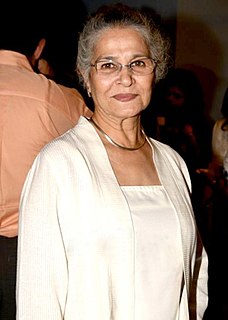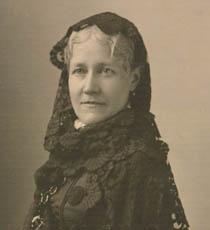A Quote by Stephen King
It would perhaps not be amiss to point out that he had always tried to be a good dog. He had tried to do all the things his MAN and his WOMAN, and most of all his BOY, had asked or expected of him. He would have died for them, if that had been required. He had never wanted to kill anybody. He had been struck by something, possibly destiny, or fate, or only a degenerative nerve disease called rabies. Free will was not a factor.
Related Quotes
When Luke had descended into the River Styx, he would've had to focus on something important that would hold him to his mortal life. Otherwise he would've dissolved. I had seen Annabeth, and I had a feeling he had too. He had pictured that scene Hestia showed me—of himself in the good old days with Thalia and Annabeth, when he promised they would be a family. Hurting Annabeth in battle had shocked him into remembering that promise. It had allowed his mortal conscience to take over again, and defeat Kronos. His weak spot—his Achilles heel—had saved us all
He was about to go home, about to return to the place where he had had a family. It was in Godric’s Hollow that, but for Voldemort, he would have grown up and spent every school holiday. He could have invited friends to his house. . . . He might even have had brothers and sisters. . . . It would have been his mother who had made his seventeenth birthday cake. The life he had lost had hardly ever seemed so real to him as at this moment, when he knew he was about to see the place where it had been taken from him.
What a wonderful sleep it had been! Never had sleep so refreshed him, so renewed him, so rejuvenated him! Perhaps he had really died, perhaps he had been drowned and was reborn in another form. No, he recognized himself, he recognized his hands and feet, the place where he lay and the Self in his breast, Siddhartha, self-willed, individualistic. But this Siddhartha was somewhat changed, renewed. He had slept wonderfully. He was remarkably awake, happy and curious.
He ran as he'd never run before, with neither hope nor despair. He ran because the world was divided into opposites and his side had already been chosen for him, his only choice being whether or not to play his part with heart and courage. He ran because fate had placed him in a position of responsibility and he had accepted the burden. He ran because his self-respect required it. He ran because he loved his friends and this was the only thing he could do to end the madness that was killing and maiming them.
Had you or I been born at the Bay of Soldania, possibly our Thoughts, and Notions, had not exceeded those brutish ones of the Hotentots that inhabit there: And had the Virginia King Apochancana, been educated in England, he had, perhaps been as knowing a Divine, and as good a Mathematician as any in it. The difference between him, and a more improved English-man, lying barely in this, That the exercise of his Facilities was bounded within the Ways, Modes, and Notions of his own Country, and never directed to any other or farther Enquiries.
There was a man that hated his footprints and his shadow, so one day he thought that if he ran fast enough, his footprints and shadow would not be able to follow him and then he never ever had to look at them again. He ran and he ran as fast as he could, but the shadow and the footprints had no problems keeping up to him. And he ran even faster and all of a sudden he fell dead to the ground. But if he been standing still there hadn't been any footprints and if he had been resting under a tree his shadow had been swallowed of the trees shadow.
There were times when it appeared to Dorian Gray that the whole of history was merely the record of his own life, not as he had lived it in act and circumstand, but as his imagination had created it for him, as it had been in his brain and in his passions. He felt that he had known them all, those strange terrible figures that had passed across the stage of the world and made sin so marvellous, and evil so full of subtlety. It seemed to him that in some mysterious way their lives had been his own.
If man had written the Gospels - say Shakespeare or Eugene O'Neill - the story of the gospel would have been drastically different. They would have placed the prince in halls and palaces and had him walking among the great. They would have had him surrounded by the important and significant of the time. Potentates and kings would have been His companions. But how sweetly common was the real God-man; though He had inhabited all eternity, He had come down and was subject to the rising and the setting of the sun.
For weeks past he had been making ready for this moment, and it had never crossed his mind that anything would be needed except courage. The actual writing would be easy. All he had to do was to transfer to paper the interminable restless monologue that had been running inside his head, literally for years.
He had tenderness in his heart — ‘a soft place,’ as Nicholas Higgins called it; but he had some pride in concealing it; he kept it very sacred and safe, and was jealous of every circumstance that tried to gain admission. But if he dreaded exposure of his tenderness, he was equally desirous that all men should recognize his justice; and he felt that he had been unjust, in giving so scornful a hearing to anyone who had waited, with humble patience, for five hours, to speak to him.
Atul had a child from his first marriage but lost him when he was just 16 years old. His wife died 7-8 years later. He's really had a tough life. Probably these experiences have made him a more sensitive, caring and loving person... Had we been 20 years younger, we definitely would have had children.
Since the foundation of the world man has had nearly all the forces on his side, working with him and for him; his intellect has been stimulated, while that of woman has been abased; he has had the run of the world and all quickening and brightening things, while she has sat in the cinders, and until of late been illumined only by his reflected light.
Descartes, the father of modern philosophy ... would never-so he assures us-have been led to construct his philosophy if he had had only one teacher, for then he would have believed what he had been told; but, finding that his professors disagreed with each other, he was forced to conclude that no existing doctrine was certain.

































